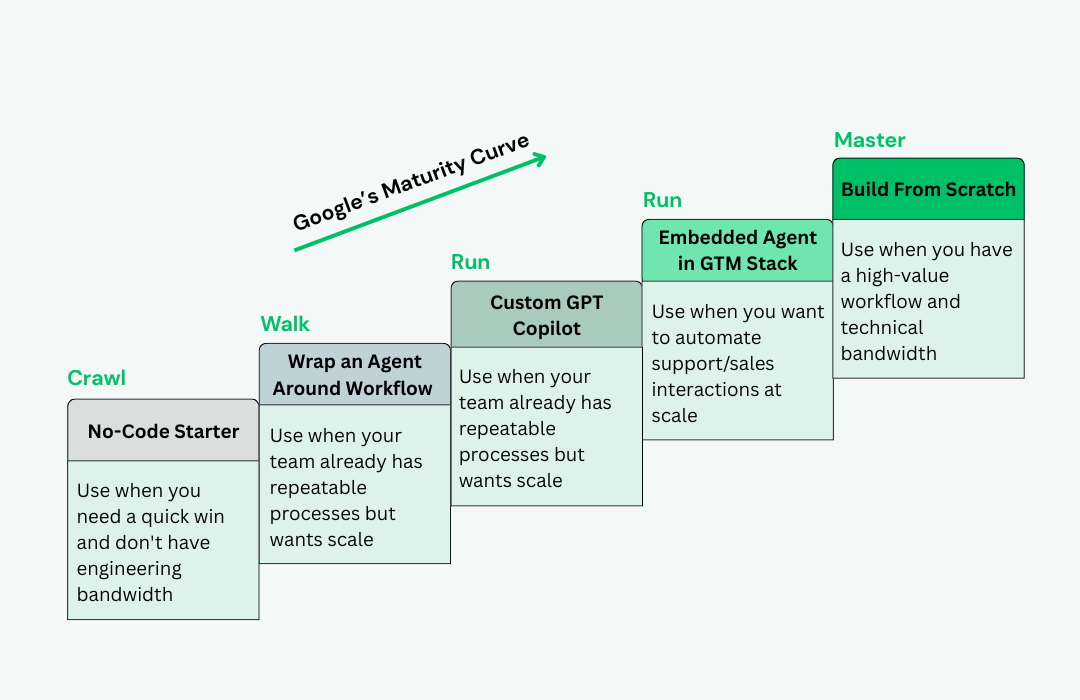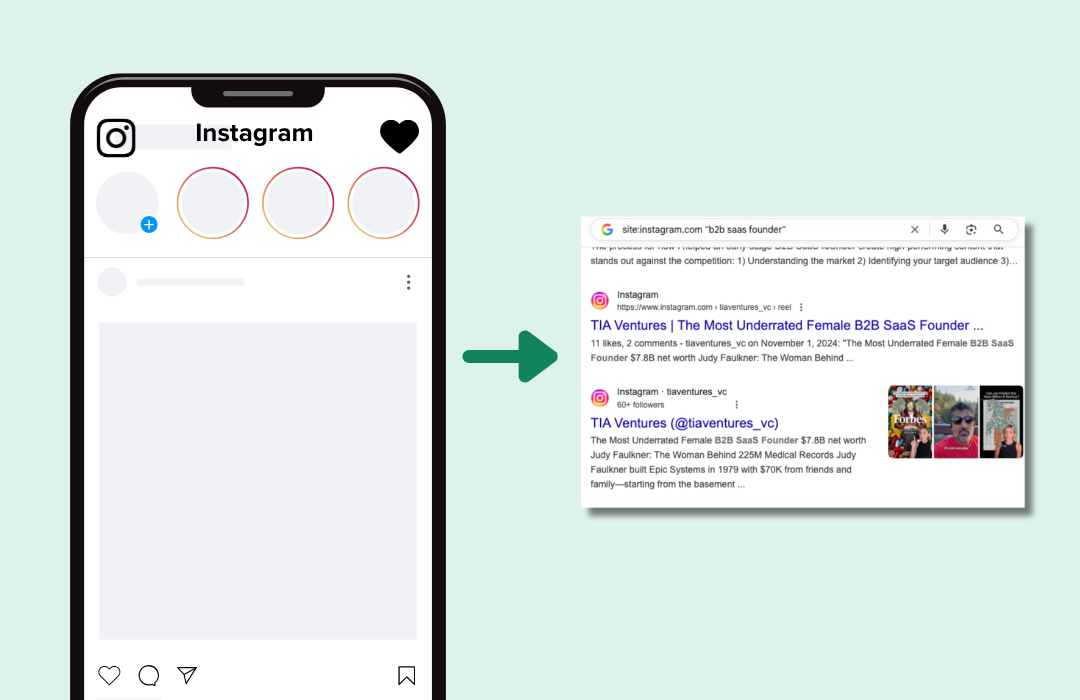Sales qualification questions help compare the prospect to the ICP to determine if they are a great fit. With an ideal customer profile, sales teams can focus on optimizing the sales qualification process.
What Is Sales Qualification?
Sales qualification is a vital process that helps sales teams determine which leads to prioritize first and which ones to shelf and pursue later. It ensures a smooth and straightforward process during lead qualification.
Sales qualification is essential because it:
- Provides clarity for future steps
- Helps identify problematic areas
- Optimizes both the client’s and sales team’s time
What Are Sales Qualifying Questions?
These are questions that sales teams ask prospects to uncover buyer needs and desires, connect with them and also demonstrate their level of expertise. Answers to these questions help us determine whether the prospect is a good fit for our products or services, and also shows what the best next steps might be.
Why Is It Essential to Ask Sales Qualification Questions?
They help determine whether a prospect fits the description of a company’s ICP and whether to prioritize them or not. Sales qualification questions help a client reflect on issues they want to address.
Qualifying questions help both the sales rep and the client clarify their thinking by forcing them to reflect on their needs and express them. Besides, these questions can identify gaps in customer thinking and guide them to getting better answers.
There are plenty of sales qualification questions we need to ask throughout the buying/selling process to help uncover need, create urgency and gain commitment.
The 20 Sales Qualifying Questions to Ask
Here are the top sales qualification questions you should ALWAYS ask your prospect:
- What are the details of the decision-making process and who is involved?
- How have decisions like this been made in the past?
- What are your top business priorities for the upcoming year?
- What are your top priorities when making this decision?
- Are you okay with telling me no?
- What’s the best way to communicate with you moving forward?
- Will you be my Champion?
- What happens if this decision doesn’t get made?
- Do you have your calendar in front of you?
- What problem are you looking to solve?
- What has prevented the problem from being solved?
- Does the client have a budget?
- What made you interested in our brand?
- What’s the best way to communicate moving forward?
- How quickly do you hope to see results?
- What will be the consequences if you don’t achieve your goals?
- What features are a priority for you and why?
- What other solutions are you considering?
- What happens if you do nothing about the problem?
- When do you intend to make a decision?
RELATED: Bant & Beyond: Advanced Sales Qualification For SDRs & AEs
1. What are the details of the decision-making process and who is involved?
OR…
2. How have decisions like this been made in the past?
This might seem obvious, but you’d be amazed at the number of sales reps who don’t ask this question.
If you don’t learn about your prospect’s company makes decisions, it puts your sales qualification process at a tremendous disadvantage.
If you don’t have a clear understanding of the decision-making process and exactly who is involved, then you shouldn’t be surprised at the end when all of a sudden you have to go talk to procurement, legal, other stakeholders, or extend the trial or do a bake-off, etc.
When someone gives a vague answer to this question, you should push back and explain that, by you understanding the details, you can help them make their buying process as efficient as possible by ensuring you have the right resources lined up on your end.
If someone is unwilling to share the details, I’d be worried about the quality of the opportunity and the likelihood of it closing in the first place.
3. What are your top business priorities for the upcoming year?
Hopefully, we can do our research on the account and find this information before any meeting we have with them.
If not, we need to understand the overall business priorities to ensure our solution aligns with them.
These are different than the priorities of the individual you are speaking with. These priorities are typically what drive all decisions throughout the year about what the company will invest in and what the executive decision-makers will sign off on.
If your solution does not align with their top business priorities, the likelihood of you selling them anything drops significantly.
This also gives you a chance to move upstream if you’re dealing with someone below the ‘power line.’
Ask them this question, and if they don’t have a good enough answer then you can say something like:
“I appreciate your insight but I’d like to understand them in a bit more detail. I really want to ensure the solution I put together not only supports your priorities but also directly aligns with the overall business priorities so we can show an impact across the board. Is there someone else I might be able to speak with to gain this insight?”
4. What are your top priorities when making this decision?
This question is more directly related to the solution you are talking about and their evaluation criteria.
By understanding their top three priorities when making this decision you can then hold them accountable throughout the rest of the process if they stray or change for whatever reason.
As an example, if you ask this question and “price” is not on the list then towards the end of the sales process (when price inevitably does become an issue), you can ask them if it is more important than the other three top priorities they spoke of earlier and you built your solution around.
I usually ask for the top priorities, include them in a ‘summary e-mail’ I send after the discussion, and ask them to e-mail me back confirming they are accurate. This creates an audit trail that you can use throughout the sales process to reconfirm and remind them what they said.
RELATED: How to Qualify a Prospect (And 6 Common Mistakes to Avoid)
5. Are you okay with telling me no?
This seems like a weird one to ask but you’d be amazed at how effective it is. No one likes telling anyone no, which is why many times clients don’t even call us back towards the end of the process.
If you get it out of the way up front and let them know you are cool with them telling you ‘no’ then they are more likely to stop the process sooner with you if you really aren’t the right fit.
Also, if you ask this question, towards the end of the sales process you can remind them if they are avoiding you and have some fun with it by leaving a voicemail that goes something like this:
“Hi Bill, this is John again with JBarrows Consulting. Remember early on in the process when I asked you if you were cool with telling me no and you said you were? Are we at that point? If we are please let me know because this ‘maybe’ or ‘no response’ zone is killing me.”
Remember, the worst sin in sales is not to lose a deal, it’s to take a long time to lose deal.
6. What’s the best way to communicate with you moving forward?
If you get someone on the phone and there are agreed-upon next steps you should ask this question. Different people like communicating in different ways. Some like e-mail, some phone, some text, cell phone, etc.
Don’t guess. Usually the answer to this one is going to be e-mail. If it is, then qualify it a little with something like “I’m sure you probably get 100-200 e-mails a day like me. Is there something I can put in the subject line that will get you to open it and respond to me?”
You can then ask:
“I promise I won’t abuse it, but when I do reach out to you it will usually in the interest of getting you what you need to make an informed and timely decision. With that, can I get your commitment that you’ll respond back to me in a timely fashion?”
You need to set the communication ground rules and expectations upfront and let them know you respect their time as much as you do yours.
7. Will you be my Champion?
Too often, reps think they have a Champion when they really have a Coach or a Fan.
The two main characteristics we look for in true Champions are
- They can steal budget.
- They agree to be your Champion.
This is someone who either has budget authority or has heavy influence on the budget and sits at the table when the time comes to make the decision.
With VPs of Sales, you can ask this question directly since they understand what it means and will usually appreciate the approach.
With other titles you may have to rephrase and say something like:
“Do you agree our solution is the best one to address your needs? If so, when the time comes to make the decision on this will you fight for me as hard as I would if I was there?”
8. What happens if this decision doesn’t get made?
You should ask this question every time. The #1 competitor we all have is “no decision”. If the answer to this question is not specific and it seems like status quo would be okay for them to deal with then I would not forecast the opportunity. However, if there will be a specific impact to them (ideally negative), then you know what you need to focus on.
9. Do you have your calendar in front of you?
One of the most important things at any stage of the sales process is a defined next step. Too often sales reps get off the phone with a prospect or a client with nothing more than a “follow up with me next week” as a next step. They then play the “touching base” and “checking in” game with the prospect as they try to get back on their calendar.
At the end of every call or meeting I have with a prospect, I make sure to identify a clear next step and get it locked in on their calendar right there.
Ask them over the phone if they have their calendar in front of them. It makes it hard for them to avoid it.
Most people are at their desk when you’re talking with them and have their calendar in front of them. If they say no to that question, there is a strong likelihood they are lying to you and not serious about the follow-up.
10. What problem are you looking to solve?
The prospect needs to have a pain point that they need to address.
The prospect should be a problem that they’re trying to solve, that your product would be best suited for.
It is not only important to understand the problem your lead is trying to solve, but also show them that you are actually listening to them (as opposed to indiscriminately pitching them your offer).
11. What has prevented the problem from being solved?
What are the prospect’s priorities that keep sidetracking them from their main goal?
Learning the distractions prevent the problem from being solved and could help sales teams avoid them and put up measures to prevent such occurrences.
It’s important to avoid taking the steps your prospect has already taken, so as to not add to their frustration and also to show that there is progress to be made.
12. Does the client have a budget?
The prospect doesn’t necessarily have to have a specific amount.
A rough figure will give the sales team an estimate, something to work with during goal setting and planning.
If their budget is much too low, that is a sign of a poor fit. Your sales team can either down sell or move on. It’s important to not be locked onto a single number, however. There will be some give and take, adjustments to the scope, and finding the right fit for everyone.
13. What made you interested in our brand?
This question is similar to “How did you hear about us?”.
However, it provides better insight into the client.
By knowing what a brand stands for, customers get a deeper understanding of its mission and what they should expect.
Instead of hearing which channel they used to find us, we can delve deeper into how our prospects think and make decisions – something you can use later in the sales cycle.
14. What’s the best way to communicate moving forward?
This question helps set and define expectations for communication with the prospect.
It also helps sales reps make connections that matter using these communication channels.
Asking which channel is best to communicate through increases the likelihood that the prospect will stay engaged and not ghost later in the process.
15. How quickly do you hope to see results?
By establishing a definitive timeline, sales reps can estimate the time as well as plan and implement the strategies to achieve the prospect’s goals: the closer the deadline, the more the urgency to find the right solutions.
This also gives you time to assess whether the timeline is realistic or whether it needs to be adjusted.
Setting the prospect’s expectations is a critical part of the sales process and if done right, will boost customer loyalty in the long run.
16. What will be the consequences if you don’t achieve your goals?
It’s possible that some clients may get distracted, consequently delaying solving their problems.
This is why it is important to ask this question.
It creates a sense of urgency and keeps the sales team members focused on the goal. It allows your sales teams to strengthen their closing process by mirroring these consequences back to the prospect.
17. What features are a priority for you and why?
Asking your prospect what product features (or aspects of their project) are the most important for them allows you to assess what to prioritize first and what can be done later.
Knowing these things can become very important as the sales cycle progresses towards the close. For example, if a project is a large one but the prospect prioritizes one feature over another, the project can be done in multiple phases.
18. What other solutions are you considering?
Sales reps get to know who their competitors are and formulate strategies to ensure their product proves more valuable to the prospect.
You can use your competitor’s quote as leverage in negotiations with the client.
19. What happens if you do nothing about the problem?
Similar to question #16, this question helps sales teams disqualify leads and educate prospects on the dangers of letting an issue go unsolved for too long.
20. When do you intend to make a decision?
The most qualified leads are those who are ready to make a decision.
Their readiness to work towards a solution shows commitment and inspires sales reps to make the client a returning customer.
You can get a feel for their urgency or commitment, allowing you to prioritize the prospect over others who aren’t quite ready to proceed.
Bonus: Based on today’s conversation, do you think our solution would add value to your business?
Sales qualification questions help differentiate between a lead and a viable prospect. Effective salespeople should master the art of asking sales qualifying questions as it saves time and helps optimize the lead nurturing process.
Aside from saving time and prioritizing clients, sales qualifying questions compare prospects against a company’s ICP and determine whether they are a good fit for them or not.
WHAT’S NEXT? So You’ve Qualified Your Prospect (Here’s What NOT to Do)







